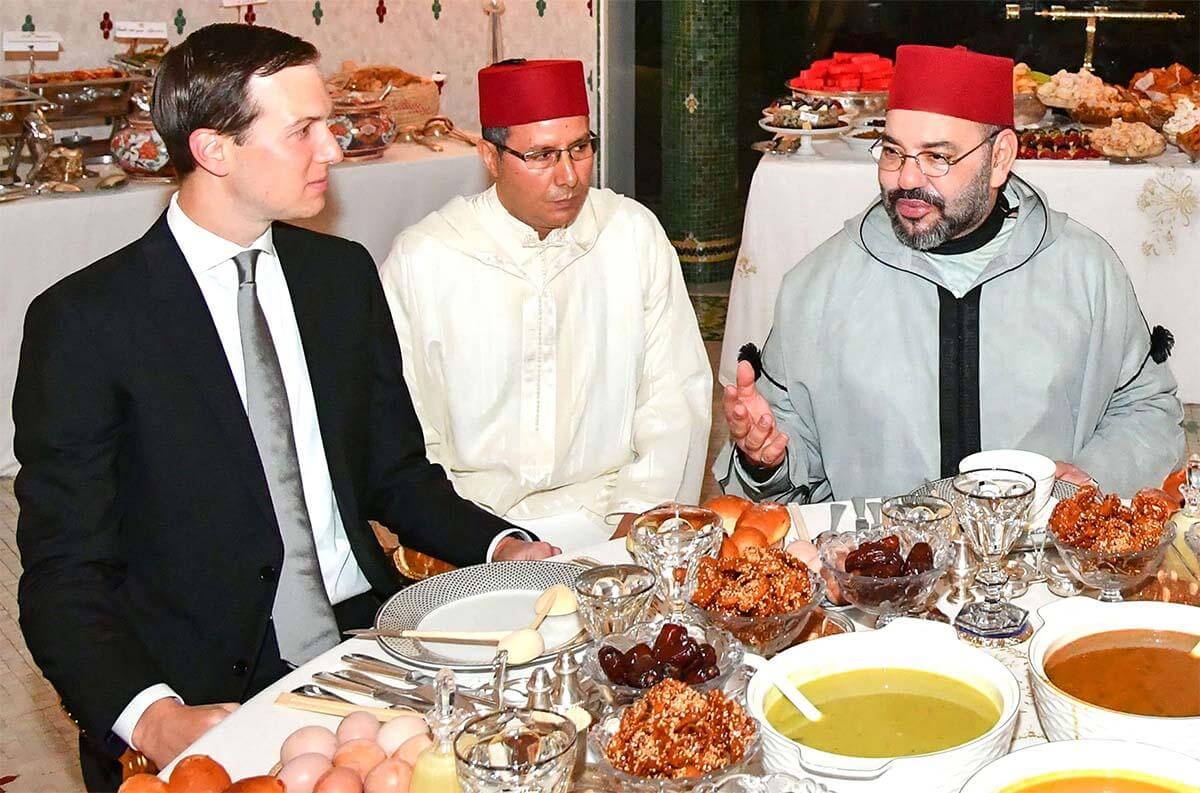
Following in the footsteps of three other Arab nations, Morocco became the latest country to announce normalization with Israel on Thursday in a deal brokered by the outgoing US administration.
US President Donald Trump took to Twitter to announce the deal, saying “Another HISTORIC breakthrough today! Our two GREAT friends Israel and the Kingdom of Morocco have agreed to full diplomatic relations – a massive breakthrough for peace in the Middle East!”
According to a statement from the royal palace, Moroccan King Mohammed VI said that Morocco would “resume official contacts… and diplomatic relations with minimal delay” with Israel.
Israeli Prime Minister Benjamin Netanyahu hailed the deal as a “historic decision”, thanking King Mohammed VI and promising a “very warm peace” between the two countries. The UAE and Bahrain, who normalized relations with Israel in August and September, also celebrated the decision.
While the details surrounding the deal remained relatively vague, reports indicated that the agreement will include direct flights between the two countries — though Israeli tourists have been allowed to travel to Morocco through other countries and enter on Israeli passports for years.
Moroccan officials also indicated that they will be reopening “liaison offices with Israel” that had been closed down after the Second Intifada, the New York Times reported, adding that the Moroccan government “downplayed” the assumption that the deal would lead to “full or new normalization.”
Like many other Arab nations, Morocco has maintained unofficial ties with Israel for decades, and talks to establish official ties and normalization have reportedly been in the works since 2017, under the auspices of Moroccan investor Yariv Elbaz, who does business in Israel.
Striking a normalization deal with Israel could bring two major wins for the Moroccan government: Not only has President Trump reportedly offered $3 billion in US investments into the North African nation — including companies owned by the King — , the US President took to Twitter following the announcement to say that the US was recognizing Moroccan sovereignty over the disputed Western Sahara.
“Morocco recognized the United States in 1777. It is thus fitting we recognize their sovereignty over the Western Sahara,” Trump said. “Morocco’s serious, credible, and realistic autonomy proposal is the ONLY basis for a just and lasting solution for enduring peace and prosperity!”
Sovereignty over the former Spanish Colony has been claimed by Morocco for years, a position fiercely opposed by the indigenous population of the Western Sahara, who have been campaigning for independence and self determination for decades.
As part of the deal, the US administration has promised to open a consulate in the Western Sahara as a further show of support for Moroccan sovereignty in the area, while the Kingdom of Bahrain pledged to do the same.
The Moroccan government has seemingly attempted to refrain from celebrating full-blown normalization, in the way that Bahrain and the United Arab Emirates (UAE) have done. The Moroccan King reportedly called Palestinian President Mahmoud Abbas to “reaffirm his commitment to a two-state solution,” and later said a deal with Israel would not affect Morocco’s “determination to continue working for a comprehensive and just peace in the Middle East.”
Palestinians, however, have rejected Morocco’s platitudes, and have condemned the government’s decision to follow in the footsteps of the UAE, Bahrain, and Sudan.
Senior PLO official Dr. Hanan Ashrawi called the deal “sinister & ugly!” and slammed the US for its police of “blackmail and bribery” in the region.
Hamas officials called it “a political sin,” while the Islamic Jihad movement described it as “a betrayal of Palestine and Jerusalem.”
Critics of the deal have pointed out that while Morocco could see some political and commercial gain from the deal, normalization in Israel could not only spark renewed tensions in the Western Sahara, but is likely to be wildly unpopular among the Moroccan people, who share historic ties to the Palestinian people, and largely oppose Arab-Israeli normalization.
For decades Arab nations have adhered to regional agreements and the long-held belief that diplomatic and commercial relations with Israel should not be normalized until the Israeli occupation of Palestine comes to an end, and the Palestinian people achieve freedom, sovereignty, and independent statehood.
In Israel, on the other hand, the move is likely to work in Prime Minister Netanyahu’s favor, who could see a major boost in public favorability with at least one million Israelis of Moroccan descent.
With less than a month left in office for President Trump, the current US administration is working hard and fast to secure more normalization deals in the region. Reports of meetings between US officials and other Gulf nations aimed at ending the GCC’s three-year diplomatic, trade, and travel embargo on Qatar, have only increased speculation that more regional powers could soon hop on the normalization train.
Related posts:
Views: 0
 RSS Feed
RSS Feed

















 December 12th, 2020
December 12th, 2020  Awake Goy
Awake Goy  Posted in
Posted in  Tags:
Tags: 
















